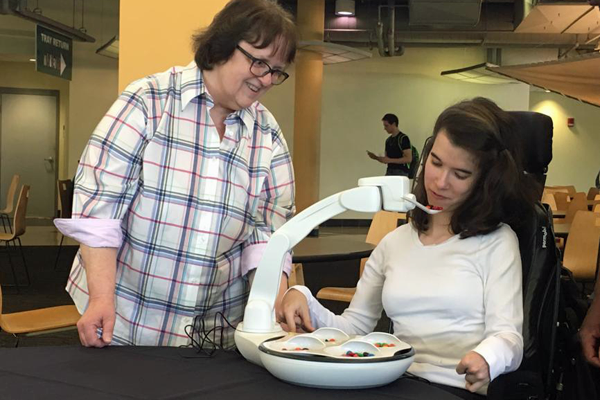
Excerpt from the Dayton Daily News
Wright State University is integrating a local company’s technology to help disabled students be more independent at mealtimes.
Locally invented and manufactured Obi was created by University of Dayton engineering graduate Jon Dekar, who made the first all-wood prototype his freshman year. From there he continued developing the technology, trying to compress larger robotics innovations to a fraction of the size and cost for consumer use, Dekar said.
He put his first model in front of investors about a year after he graduated, which is mostly the same model used today, Dekar said. Obi is a four compartment plate, with a mechanical arm holding a spoon. It’s about seven pounds, so consumers are able to travel and take it to restaurants.
“I found it very odd that there just wasn’t a technology yet on the market to help people with this basic human need and one of life’s most enjoyable day-to-day aspects,” Dekar said.
Now Dekar’s company DESiN (pronounced Design), which designs and manufactures Obi robotic feeders all in-house in Dayton, sells Obi in 20 different countries. Nearly 1,000 Obi devices, which use different controllers based on mobility needs to operate an arm and attached spoon, have been manufactured and shipped to people who need them to eat on their own.
About 3.5 to 4 million people in the United States could use Obi, Dekar said. About 15 to 20 Wright State students can benefit from the tool found in two dining halls — The Marketplace and the Hangar, according to a Wright State spokesman. There’s a third Obi in the Office of Disability Services where students can train on the device before using it in public.
“I expect that demand will continue to grow and we may also have employees who may find that it will be very beneficial for them as well, so I would suspect that we might be going back to DESiN in some short order in order to help make sure that those that need this technology are able to access it,” said Chery Schrader, Wright State president.

